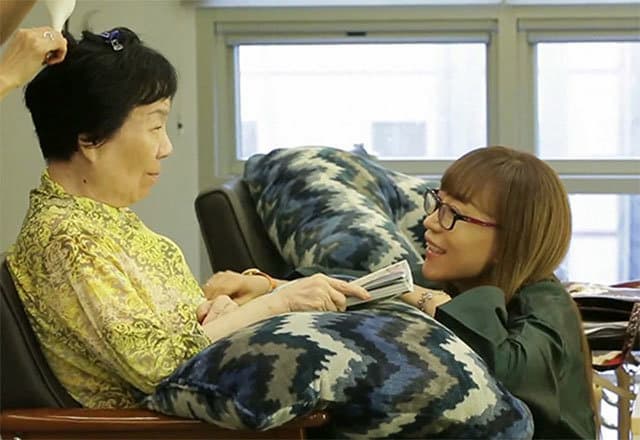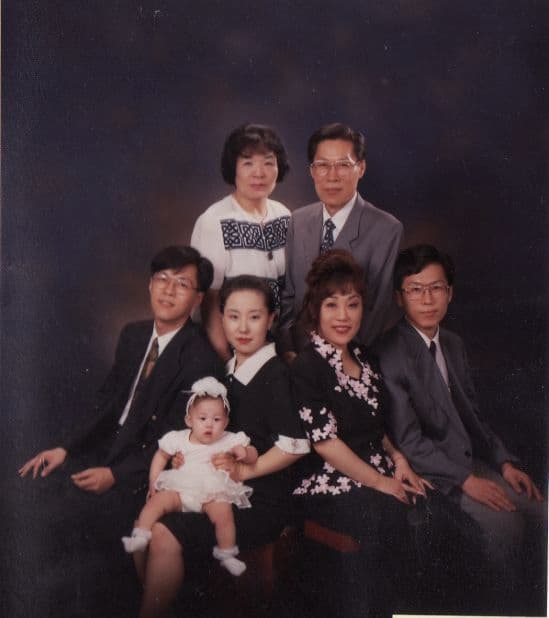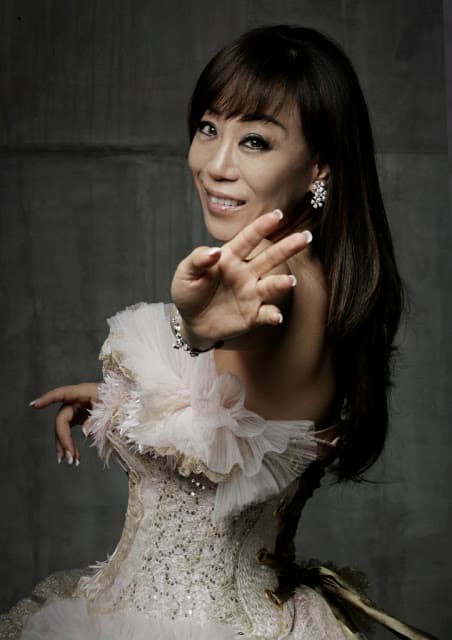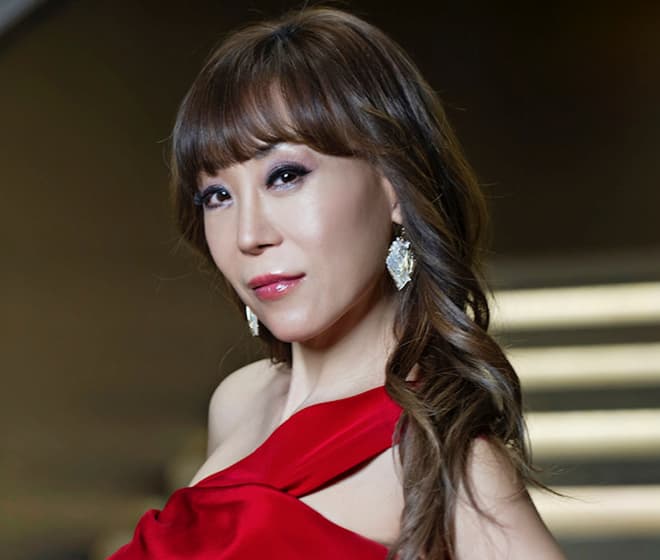The South Korean lyric coloratura soprano Sumi Jo, actually born Jo Su-gyeong on 22 November, 1962 in Changwon, is known for her Grammy award-winning interpretations of the bel canto repertoire. The conductor Herbert von Karajan praised her as “a voice from above, and the best gift God has given.” Praised for the remarkable agility, precision and warmth of her voice, alongside outstanding musicianship and widespread audience appeal, Jo is one of the most popular singers of her generation.
Sumi Jo performs Gounod: Roméo et Juliette “Waltz”
Tiger Mama

Sumi Jo and her mother
Jo’s mother was an amateur singer and devoted admirer of Italian opera and she just loved Maria Callas. “From an early age I was inevitably surrounded by classical music. I would go as far as to even say that I felt suffocated in this musical surrounding, being forced to listen to too much classical music from a very young age.” Predictably, classical music was not her first love, but as she explained in an interview, Sumi Jo was in love with American pop music.
In fact, her mother had trained to be a professional singer and pianist, but because of the political situation in Korea during the 1950s, was unable to realise her dreams. As such, she was determined that her daughter should have the musical opportunities she never had. Jo was enrolled in piano lessons at the age of 4 and started singing lessons at the age of 6. She strictly oversaw her daughter’s education, and Jo remembers that when her mother went out, “she locked the door outside so that I could not escape.”
Wolfgang Amadeus Mozart: Die Zauberflöte (The Magic Flute), K. 620, Act II: Der Holle Rache kocht in meinem Herzen (Sumi Jo, soprano; Berlin Radio Symphony Orchestra (Radio-Sinfonie-Orchester Berlin); Roberto Paternostro, cond.)
American Pop and Herbert von Karajan

Sumi Jo with family
As a child, Sumi Jo would often spend up to eight hours a day studying music. Curious about musical styles from around the world, she would immerse herself in the various sounds and rhythms of jazz, pop, and traditional music from the Middle East, South Asia, and Africa. “As a child,” she explained, “I was curious about all forms of music, and was able to get in touch with a wide range of cultures and artistries.” For the teenage Sumi Jo, however, American pop music had the greatest appeal.
Growing up Sumi Jo idolised Herbert von Karajan. According to the singer, she used to live in a tiny room, containing just a bed and modest-sized table. “However, on the wall above this small table hung a photograph of Karajan, larger than the table itself. Essentially, Karajan was both the first person and the last person I saw every day.” Jo jokingly suggested that she was closer to the poster of Karajan than she was to her parents, as “he almost felt like a childhood friend or relative. So when I finally met the maestro in flesh, it was like a family reunion.”
Sumi Jo Performs Puccini’s Gianni Schicchi, “O mio babino caro”
Multiple Talents

Sumi Jo
Sumi Jo was a precocious musical talent from a very early age. Around the age of 3, she was able to memorise any melody she heard on the radio or television, and she would immediately reproduce those melodies on the piano. However, she was not merely talented in terms of music, but also loved ballet and painting. With her mother being an enthusiastic and competitive person, Sumi Jo got involved in everything.
As she recalled, “If there was an international painting competition, I would enter the competition representing Korea and return home with awards. When I tried out ballet, all my teachers told my mother that I should go professional. Equally, when I tried out gayageum, all my teachers told me I should go professional. So all in all, I was gifted in anything that was artistic.” And she certainly had the stage personality to go with it, as she loved getting the attention from a young age. “For this reason, I thrived in improvising on stage, playing pieces I was not that prepared to perform. I loved the feeling of entertaining people.”
Gioachino Rossini: The Barber of Seville, “Una voce poco fa” (Sumi Jo, soprano; Monte-Carlo Philharmonic Orchestra; Paolo Olmi, cond.)
Studies in Korea and Italy

© Berin Iglesias Art
Sumi Jo entered Seoul National University with the highest mark given to any applicant in the entire history of the institution. She received scholarships in voice and piano, but wasn’t really that interested in her studies. She recalled, “I barely looked at the weekly tasks we were given until 10 minutes before each lesson. I just knew I was able to do well even without much preparation.” At the end of her first year of University, Sumi Jo left for the Conservatoria Santa Cecilia in Rome, unable to speak a single word of Italian.
She had always considered herself a mezzo-soprano, but after several months of training started to feel comfortable in the high registers. As she explained, “I suddenly became comfortable with high notes typical of coloraturas, and interested in bel canto. All in all, I see my development as an operatic singer to have been driven by my curiosity to explore novelty.”
For more of the best in classical music, sign up for our E-Newsletter
